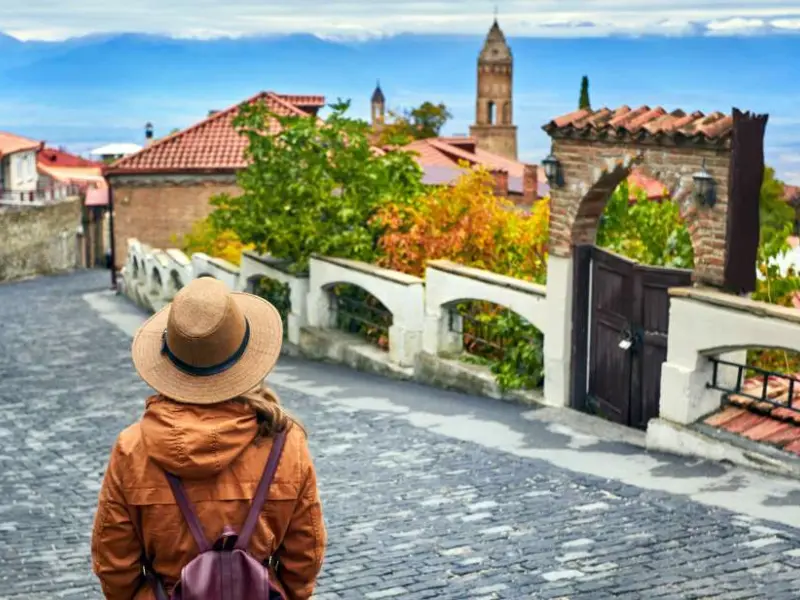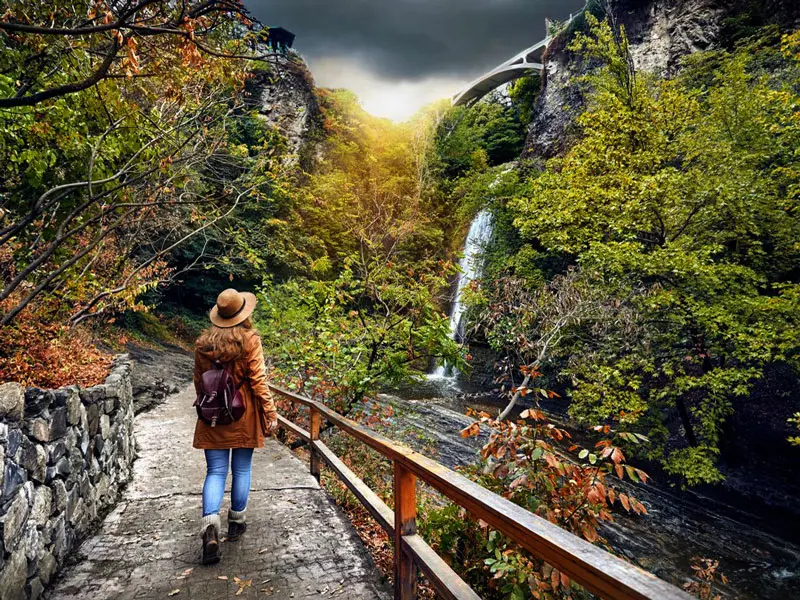The South Caucasus, a region nestled between Europe and Asia, is a hidden gem that offers a rich cultural tapestry, stunning landscapes, and warm hospitality. Before you go on a trip to this enchanting part of the world, find out 10 useful things which should be taken into account:
1. Visa Requirements
Before you plan your trip, make sure to check the visa requirements for the countries of the South Caucasus. Armenia and Georgia offer visa-free entry to many nationalities, while Azerbaijan often requires a visa in advance. It's essential to do your research and obtain the necessary visas before your arrival. In our post “Visa to Armenia, Georgia and Azerbaijan” you will learn the citizens of which countries can enter these countries without a visa, who require a visa, and who can get a visa only by invitation.
2. Language Diversity
The South Caucasus is home to a diverse range of languages, including Armenian, Georgian, Azerbaijani, and numerous regional dialects. English is studied as a second language by most schoolchildren and students however its proficiency can vary, especially in more rural areas, so it's helpful to learn a few basic phrases or carry a translation app to ease communication. Our post “Armenian Phrases for Tourists” will help you learn some common Armenian phrases.
3. Cultural Sensitivity

The South Caucasus is steeped in ancient traditions and customs, so it's important to respect the local culture. Dress modestly when visiting religious sites, follow local customs, and be mindful of your behavior. Taking the time to learn about local customs and traditions can enhance your experience and foster positive interactions with the locals.
4. Transportation
Public transportation networks in the South Caucasus can be limited, especially in remote areas. It's advisable to plan your itinerary in advance and consider renting a car or hiring a driver for more flexibility. The most popular way to travel within cities are minibuses and buses. Alternatively, taxi services can be used. To move between cities over long distances, you can rent a car, order a taxi or take minibuses that depart from bus stations. Some major cities are connected by railroad tracks. Learn more about taxi in Yerevan, Tbilisi and Baku here.
5. Currency
Each country in the South Caucasus has its own currency - Armenian Dram (AMD), Georgian Lari (GEL), and Azerbaijani Manat (AZN). While major cities and tourist areas may accept credit cards, it's wise to carry some local currency for smaller establishments and rural areas. Get some useful information about currency in Armenia, Georgia and Azerbaijan here.
6. Dress Code

There is no any dress code enforced in Armenia, Georgia and Azerbaijan and travelers are free to dress as they like. However, it is important to note that there are still certain cultural and religious sensitivities to be mindful of. When visiting religious sites or attending formal events, it is recommended to dress modestly and respectfully, covering shoulders and knees. For monasteries, women are meant to cover their heads. Men should wear long trousers. However, one can often see local women wearing trousers and tourists wearing shorts without any issues. It is probably safest to bring alternative clothes in case someone objects to your attire. To learn about necessary items, you’ll want to pack for your trip to Armenia click here.
7. Best Season
Not all people tolerate extreme heat and cold weather, so before planning a trip, we recommend taking into account the possibility of weather tolerance. In the South Caucasus region, the middle and end of summer is quite hot. This is especially true for the air temperature in the capitals: Yerevan, Tbilisi and Baku. In mid-July and August, the temperature can reach +35-39 °C. During this sultry period, people try to leave the cities.
In Georgia and Azerbaijan, locals run away from the heat to the sea coasts, in Armenia - to Lake Sevan. However, in the mountains, the air is cooler in summer, and the temperature rarely rises above 25-27 °C.

Winter in the countries of the South Caucasus is not severe, but of course it also depends on the region. In the capitals, January is considered the coldest month: during this period, frosts can strike and it may snow. The good news is that winter here never lingers beyond its calendar time. The season is great for fans of skiing and snowboarding as there are great ski resorts fully equipped for these kind of sports.
The mildest season for visiting Armenia, Georgia and Azerbaijan is considered the end of spring/beginning of summer, as well as September. Weather changes and rains begin in March and closer to November.
8. Safety
While the South Caucasus is generally a safe region to travel, it's always wise to take standard precautions. Secure your belongings, be aware of your surroundings when withdrawing money from ATMs or carrying large amounts of cash or valuables, and stay informed about any local advisories or political tensions.
Armed conflict on the boarders of Nagorno-Karabakh and Azerbaijan doesn’t impact the safety in Armenia and Azerbaijan. The only precaution is that travel to the border zone is discouraged (and not essential, as the Armenia-Azerbaijan border is closed anyway). Learn more about safety in Armenia, Georgia and Azerbaijan here.
9. Food and Drink

The South Caucasus boasts a tantalizing culinary scene. From Armenian lavash bread and Georgian khinkali dumplings to Azerbaijani plov (pilaf), the region offers a plethora of unique flavors. Don't miss the chance to indulge in traditional dishes and sample local wines, brandies, and herbal teas. Get gourmet guide to the South Caucasus here.
10. Genuine Hospitality
One of the most memorable aspects of traveling in the South Caucasus is the warm hospitality of the local people. The South Caucasus region is known for its genuine hospitality and welcoming nature. Don't be surprised if strangers invite you into their homes for a cup of tea or engage in heartfelt conversations. Embrace these interactions and be open to connecting with the locals. It's an excellent opportunity to learn about their traditions, stories, and way of life.
In conclusion, traveling to the South Caucasus is a rewarding and enriching experience. By being aware of these 10 things, you can make the most of your journey and ensure a smooth and enjoyable adventure. Embrace the diversity, immerse yourself in the rich culture, and savor the stunning landscapes. The South Caucasus has a unique charm that will leave a lasting impression on your heart and soul. Bon voyage!
Choose the Tour to Armenia, Georgia and Azerbaijan you like most and tour-operator Arara will organize your amazing Holiday in the Caucasus.













